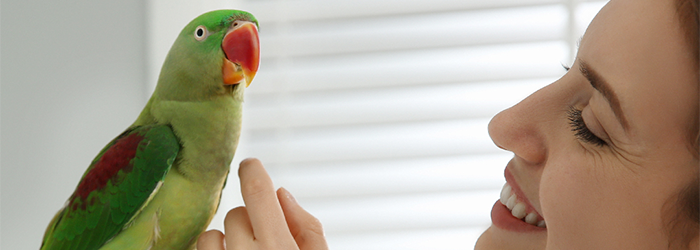Does Your Small Pet Need Vitamin C?
Most species don’t require vitamin C as an essential ingredient in their diets, but there are some notable exceptions.

The most notable species requiring vitamin C is us. Along with humans, nonhuman primates, guinea pigs, bats and some fish and bird species require vitamin C as they cannot produce it themselves. For that reason, they need vitamin C in the foods they eat to meet the requirement.
These species lack L-gulonolactone oxidase, the enzyme that converts glucose and galactose into ascorbic acid. For the species that can synthesize vitamin C, this enzyme is normally present in their liver or kidneys.
Determining that vitamin C was a required nutrient for humans came about when sailors started to develop scurvy, which included symptoms such as lethargy, painful joints, gum disease, and eventually death. This group was particularly vulnerable due to perishable fruits and vegetables not being available during long trips at sea. It was eventually understood that citrus fruits helped correct or prevent scurvy, but it took many years before this was linked to vitamin C.
Understanding The Importance Of Vitamin C For Humans
Ascorbic acid is an important player in collagen and carnitine synthesis as an antioxidant and mineral metabolism. Like other water-soluble vitamins, there’s no body tissue storage of vitamin C. This means species requiring vitamin C must consume it regularly to maintain circulating levels.
Fresh foods high in vitamin C include citrus fruits (notably oranges and lemons), bell peppers, broccoli, strawberries, cantaloupe, kale, tomatoes and organ meats. Vitamin C is relatively non-toxic, even at very high doses. High doses of vitamin C in humans are even believed to reduce the severity of common cold symptoms.
Understanding The Importance Of Vitamin C For Your Pet
Naturally occurring ascorbic acid is highly sensitive to high temperatures, pH, oxygen and pressure. Unfortunately, high temperatures and pressure also tend to occur during the manufacturing of many animal diets. Most small animal and pet bird diets contain at least some pellets or extruded particles.
Pelleting and extrusion processes involve heat and pressure. Because the source of vitamin C within a diet usually comes from the pellets/extruded diet, finding a heat-and-storage-stable vitamin C source is important.
Longer Shelf Life For Small-Pet Food
For your pets that require vitamin C in their diet, the rule of thumb is to feed a diet within 3 months of manufacture. This was due to the fact that previously used vitamin C sources would degrade during processing and quickly over time. Modern technology has allowed us to significantly increase the shelf life of vitamin C using a stabilized version.
Mazuri® diets contain this heat and shelf stable ingredient, making them the perfect option to ensure your pet is getting all the vitamin C it needs.
Find more resources and insights from our nutritional experts and follow us on Facebook and Instagram for additional tips.
